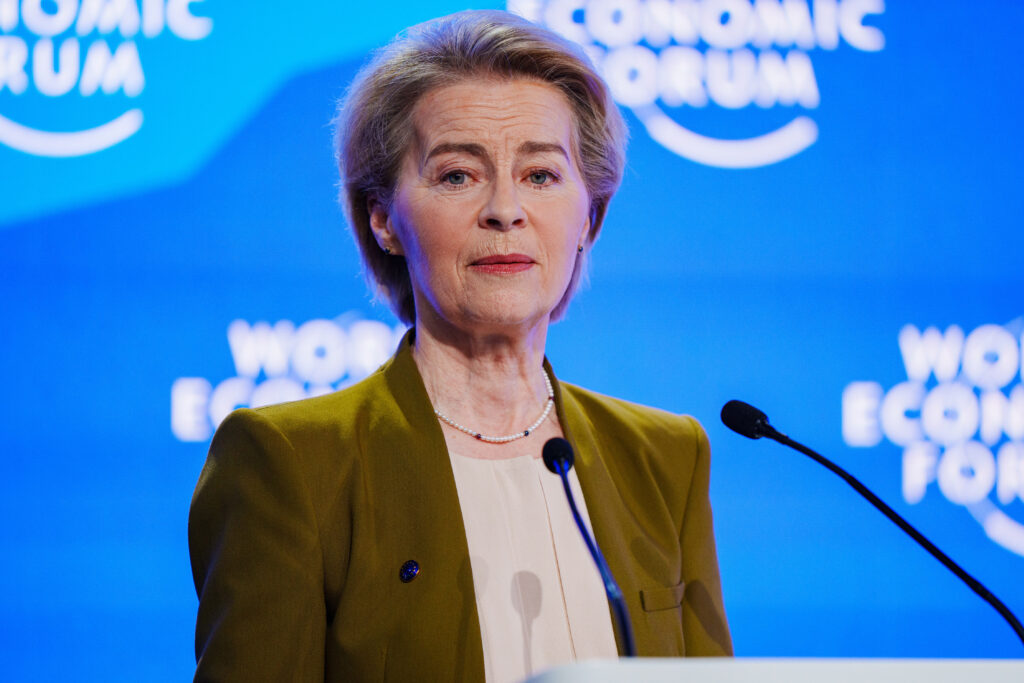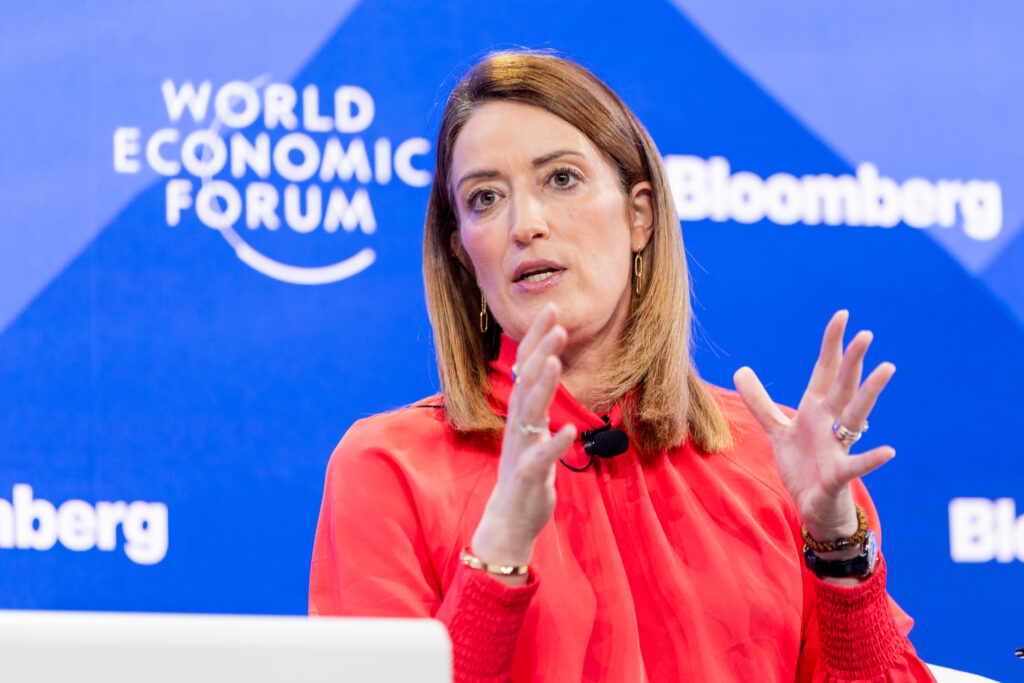Brussels – Although the new (returning) U.S. President Donald Trump‘s fiery speech deflagrated yesterday (Jan. 23) like a hand grenade on the audience of the World Economic Forum (WEF) underway in Davos, it seems that, for the time being, no one in the upper echelons of the European Union wants to comment on it.
Virtually joining the meeting that in the setting of the Swiss Alps brings together annually the bigwigs of global business and finance, the New York tycoon launched his tirade against what he considers the major evils of Europe: The follies of the “ridiculous” Green deal, the bet on renewables, the hypertrophic bureaucracy, too-high taxes and alleged trade imbalances with the star-studded economy.
Yet, no one in Brussels seems interested in responding to the invectives of the most powerful man on Earth as he takes a sledgehammer to the basic element on which transatlantic relations are (or should be) based: mutual trust. Deafening above all is the silence of Commission Chairwoman Ursula von der Leyen, who even at the WEF staked out a claim on the green policies introduced in her first term—policies that, however, she is now silently busy scaling back, like a modern Penelope weaving her warp by day and unravelling it by night—and launched the Global Forum on Energy Transition.

One of the few voices heard was that of European Central Bank head Christine Lagarde, also in Davos, for whom Trump’s re-election and his speech yesterday are “a wake-up call” for Brussels and European chancelleries, whose task now is to “act together and respond.” The ECB chief believes that “a big wake-up call” is needed from the Europeans. In her interpretation, the leaders of the Twenty-Seven must work together and respond “to external threats,” including the bogeymen stirred up by the U.S. president, such as the reintroduction of heavy tariffs and the tax-dumping promised by the White House to incentivize companies around the world to invest in the United States.
At this historical stage, one of the hottest issues in the relationship between Brussels and Washington is compliance with the EU rules to monitor digital platforms and, in general, any company that operates online selling goods and services.
The bone of contention, in this case, is what Trump has repeatedly complained of as an “unfair treatment” by the Twenty-Seven against the main U.S. tech companies—above all X and Apple, hit by the twelve-star antitrust with hefty fines in the past months and years for proven violations of EU competition and digital regulations (the latter contained in two “twin” legislative measures known as DSA and DMA, acronyms for Digital services act and Digital markets act, respectively).
As stressed this morning by the European Commission’s Deputy Head of Spokesmen Stefan de Keersmaecker, these are “very powerful rules” designed for “protecting our citizens and companies and the way business is done within the EU.” His colleague Thomas Regnier confirmed that the “investigation against X under the DSA is still ongoing” but that the EU executive has yet to take a final decision. In any case, Competition and Internal Market spokeswoman Lea Zuber remarked that “we have sanctions in our antitrust systems that we impose on all companies in case they violate European rules, wherever they come from.”
On the other hand, some try to pour oil on troubled waters, such as EU Parliament President Roberta Metsola. We should not be afraid of Trump,” she told La Stampa, adding that Europeans have “lost some confidence” in their abilities and reiterating the tired refrain that “we and the United States are historical allies.”

Finally, some smugly jump on the bandwagon of the newly elected president: “On the Green deal, the European Union got it wrong,” says Italian Vice-Premier Antonio Tajani, who will be in Brussels next Monday for the Foreign Affairs Council. According to the Forza Italia leader, “the fundamentalist and ideological environmental policy that has been there in past years should be revised,” replacing it with “a pragmatic policy line.”
This is what Trump himself asks for (or rather demands), according to whom the Green deal made in Europe is “a hoax”. After all, the tycoon promised to reopen coal-fired power plants and to return to drilling after withdrawing Washington from the Paris climate agreements for the second time, a gesture he had already made during his first term.
English version by the Translation Service of Withub
![Il presidente degli Stati Uniti, Donald Trump, al World Economic Forum [Davos, 23 gennaio 2025]](https://www.eunews.it/wp-content/uploads/2025/01/trump3-350x250.png)







